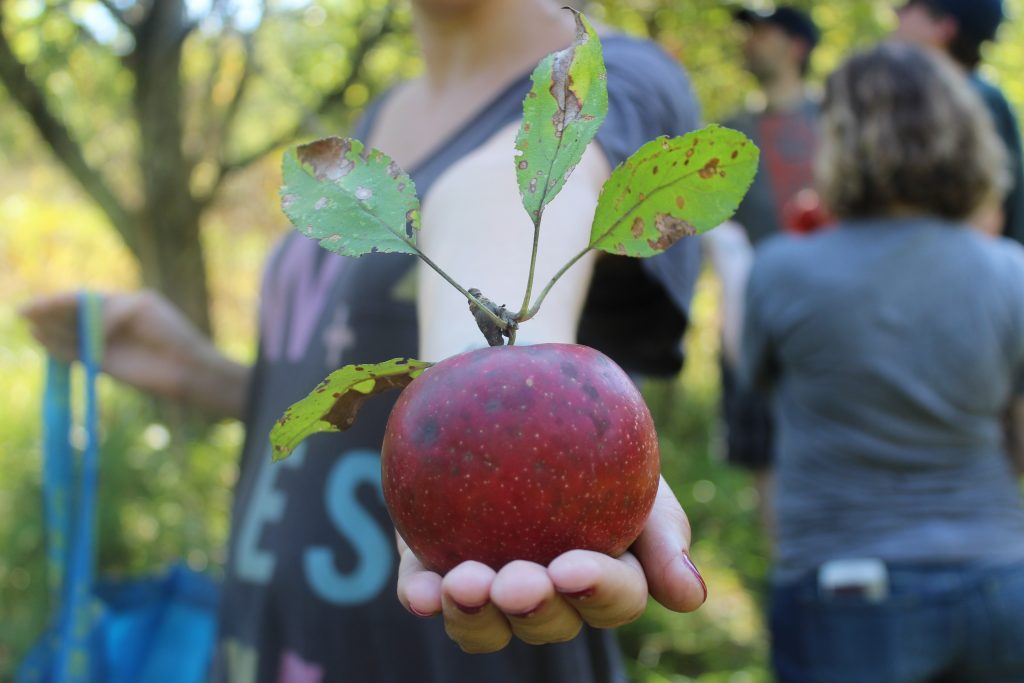Anyone who has hung around the Concrete Jungle for any time at all knows how much we love our apples! Concrete Jungle has put an incredibly unique spin on apple collecting that makes the process of apple picking and processing just as healthy as the process of eating the fruit itself.
The whole process starts with monitoring the countless apple trees we have in metro Atlanta. This is definitely a team effort, and many CJ volunteers and “fruit parents” get on their bikes to traverse the city in search for the perfect timing to pick the apples. Next, groups of volunteers gather to pick the apples. Through perhaps the most fun combination of aerobic and anaerobic exercise, volunteers climb the trees and shake the limbs loose of the ripe fruit which fall on to tarps for sorting and gathering. Finally, the apples are either donated to homeless shelters and food banks. Here are at least 4 ways to exercise while harvesting apples to feed our city’s hungry.
Now, for the health benefits of the fruit itself. A healthy anti-inflammatory lifestyle requires a predominantly plant based diet, and apples happen to be amongst nature’s finest treat. Apples are sweet fruits given their sugar content, but are more friendly with a glycemic index of 38. This means that they will raise your blood sugar more slowly than other fruits such as watermelon (glycemic index of 72). This is important information for diabetics and other people who need to watch their sugar intake. A 2012 study published in the American Journal of Clinical Nutrition found that apples, as well as pears and blueberries, were linked with a lower risk of developing type 2 diabetes because of a class of antioxidants, anthocyanins, that are also responsible for red, purple and blue colors in fruits and veggies.
Apples can help lower your cholesterol thanks to their soluble and insoluble fiber content. Eating an apple with a full glass of water 15 minutes before a meal will help you to feel full faster and therefore help with portion control and weight loss.
An antioxidant called quercetin is found in the skin of apples which can help with allergies, asthma, and even cancer prevention and anti-aging. In 2007, a study from Cornell found additional compounds found in apples, called triterpenoids, which seem to fight against liver, colon, and breast cancers.
Apples may help your memory and lower your chances of developing Alzheimer’s also, due to the effects of acetylcholine in the brain. So remember to eat plenty of apples, and what better way to get local, sustainably harvested, organic, non-GMO, and delicious apples than to grow or forage them yourself?!
To your health, Dr. Z
